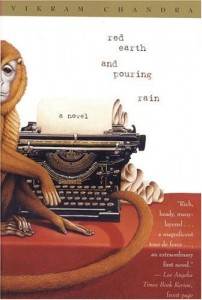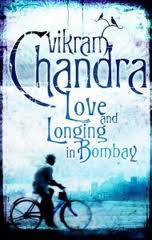Biography

A relative newcomer to the literary scene, Indian author Vikram Chandra garnered much praise for his debut novel Red Earth and Pouring Rain. Following this well-received work of 1995, Chandra dazzled critics once again with the release of Love and Longing in Bombay, a unique collection of five lengthy stories for which he won the Commonwealth Writers’ Prize for Best Book (Eurasia Region). Born in New Delhi in 1961, Vikram Chandra was deeply influenced by his mother’s passion for writing. Of his mother, a successful screenplay writer for Indian cinema, Chandra recalls, “I can’t remember a time when she was not writing” (Morrow). With this solid literary lineage behind him, Chandra immigrated to the United States and enrolled in film school at Columbia University. He soon left, however, once he developed a nagging impulse to explore the autobiography of Colonel James “Sikander” Skinner, a character who would later surface in Red Earth and Pouring Rain. Chandra had come across the story of Skinner by chance while at school, but this “chance encounter” proved too rousing to abandon. While reading a translated version of Skinner’s autobiography – it had been written in Urdu originally – Chandra began to consider the “large interpolations and excisions made by the translator” (Contemporary Authors):
“I thought, then, about language, about speaking in alien tongues, and being made to speak in someone else’s voice, and about history and memory and the preservation of the past.”
Chandra’s considerations compelled him to write what he thought was going to be a “quick novel.” The final product, however, would emerge nearly six years later as Red Earth and Pouring Rain. Since Red Earth, he has written Love and Longing in Bombay, another well-received literary effort. Chandra’s third novel is Sacred Games and came out in 2007. See also List of Writers and Filmmakers from the Indian Subcontinent, Postcolonial Novel.
Love and Longing in Bombay

Chandra’s second effort, Love and Longing in Bombay, is a fine example of story-telling and fable-weaving. Set against the backdrop of a smoky Bombay bar known as the Fisherman’s Rest, Chandra’s five stories are recounted by Subramaniam, a retired civil servant. This enigmatic story-teller even manages to captivate the imagination of Ranjit, the novel’s main narrator who is an unfailing skeptic, belonging more to contemporary Bombay than to the city’s tradition and intrigue. The stories within Love and Longing in Bombay could be read as five distinctive tales, each floating free of the other. Yet, there is a common narrator throughout the work. Chandra also binds his fables together with Hindu concepts of living, such as those of duty [“Dharma”], fortitude [“Shakti”], love [“Kama”], economy [“Artha”], and peace [“Shanti”] (Sethi). Love, by far, is the collection’s most pervasive theme. In “Shakti,” it is a forbidden love that comes to unite two families. Rivaling socialites Sheila Bijlani and Dolly Boatwalla must abandon their differences for the sake of the love that exists between Sheila’s son and Dolly’s daughter. It is in “Shakti” that Chandra impresses upon his readers the hopefulness of love. Both “Kama” and “Artha” further explore the themes of love and desire. Subramaniam recounts Sikh policeman Sartaj Singhí’s investigation of a marital murder in “Kama,” a homicide which the main narrator, Ranjit, too easily dismisses as a crime of passion. Singh, however, uncovers the true tawdry tangled tale of love and betrayal that exists between husband and wife. In the meantime, Singh must also face his own demons of desire when his ex-wife reenters his life. Homosexual love as well as the loss of love are examined in “Artha.” Computer programmer Iqbal Akbar confronts a horrible truth about the underworld life of his own lover, Rajesh, while Sandhya, Iqbal’s co-worker and friend, discovers and effectively eliminates the infidelities of her artsy beau. In Love and Longing in Bombay, Chandra reveals a striking talent for story-telling: indeed, some critics have likened his artistry of fable-weaving to that exhibited in Arabian Nights and The Canterbury Tales (Frank).
Awards and Honors
- Discovery Prize from Paris Review, 1994, for the story “Dharma.”
- David Higham Prize in Fiction from Book Trust, London, 1995, for Red Earth and Pouring Rain.
- Commonwealth Writers’ Prize for Best Book (Eurasia Region), 1997, for Love And Longing in Bombay.
Novels
- Chandra, Vikram. Love and Longing in Bombay. Boston: Little, Brown and Company, 1997.
- —. Red Earth and Pouring Rain. Winchester: Faber, 1995.
- —. Sacred Games. New York: HarperCollins, 2007.
- —. Geek Sublime: Writing Fiction, Coding Software. New York: Faber and Faber, 2013.
Works Cited
- Contemporary Authors. “Chandra, Vikram 1961–.” Galenet. Web. 16 Feb 1998.
- Frank, Michael. “Magic Carpet: Love and Longing in Bombay.” Los Angeles Times. 16 Mar. 1997: BR 8.
- Morrow, Kathleen. “Area Writer Introduces First Novel.” (26 July 1995) Houston Chronicle. March 1998
- Sethi, Robbie Clipper. “Love and Longing in Bombay.” India Star. 16 Feb. 1998
Author: Catherine Wolfe, Spring 1998 Last edited: May 2017